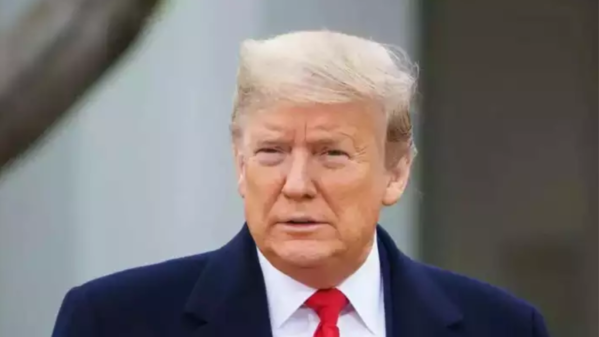Donald Trump's inauguration as 47th President: key policies and events to watch

17-Jan-2025 07:29 PM
Donald Trump will be sworn in as the 47th U.S. President on January 20, starting his second term. The inauguration will include traditional ceremonies, with Trump delivering an address described as “uplifting and unifying,” in contrast to his 2017 speech. He plans to take immediate executive actions on border security, immigration, and energy. Foreign leaders, including Argentina’s President Milei, will attend, breaking with tradition. The day will end with inaugural galas and celebrations, setting the tone for his administration’s priorities.
Donald Trump will assume office as the 47th President of the United States on January 20, marking the start of his second term in the White House. The inauguration, a significant event in American democracy, blends ceremonial traditions with immediate actions on key policy issues such as border security, immigration enforcement, and energy expansion. When and Where Will the Ceremony Take Place? The official swearing-in will occur at 12 p.m. ET (1700 GMT) on the steps of the U.S. Capitol, likely administered by U.S. Supreme Court Chief Justice John Roberts. Trump is expected to deliver an inaugural address he has described as “uplifting and unifying,” which contrasts with his 2017 speech that painted a grim picture of “American carnage.”Outgoing President Joe Biden has confirmed his attendance, ensuring a peaceful transfer of power. In contrast, Trump skipped Biden’s swearing-in ceremony four years ago. Thousands of spectators are expected to gather at the National Mall to watch the event on large video screens, though ticketing will limit access to the Capitol grounds. A Shift in Tradition: Foreign Leaders Among Guests Breaking from tradition, Trump has invited several foreign leaders to the event, a move typically avoided due to security concerns. Argentine President Javier Milei, a vocal supporter, has confirmed he will attend, and Hungarian Prime Minister Viktor Orbán, another ally, is considering making the trip. However, Chinese President Xi Jinping is not expected to attend, despite receiving an invitation. The Parade to the White House Following a formal luncheon with congressional leaders, Trump will travel down Pennsylvania Avenue in a motorcade to the White House. The parade will feature military regiments, school marching bands, floats, and community organizations. Trump and his guests will watch the parade from a reviewing stand outside the White House. Immediate Policy Actions: Executive Orders on Day One Trump’s return to office will quickly reverse several policies from the Biden administration. He has pledged to sign more than two dozen executive orders right after the ceremony. Key orders include: Trump is also expected to issue the first round of pardons for individuals convicted in relation to the January 6, 2021, Capitol attack. Evening Festivities: Galas and Celebrations The day’s events will conclude with several inaugural galas across Washington, D.C., many of which Trump is expected to attend. These events are funded by Trump’s inauguration committee, co-chaired by real estate developer Steve Witkoff and former Senator Kelly Loeffler. Major corporate contributors include Amazon and Meta Platforms, both donating $1 million. In 2017, Trump raised a record $106.7 million for his first inauguration, and similar fundraising efforts are expected for this term’s celebrations. Large donations must be disclosed to the Federal Election Commission to ensure transparency. A Remarkable Political Comeback Trump’s second inauguration comes after one of the most significant political comebacks in U.S. history. His re-election campaign focused heavily on reversing Biden-era policies, especially in immigration and energy. Trump’s ability to rally a loyal voter base and navigate a challenging political landscape demonstrates his resilience. By blending traditional ceremonies with a sharp focus on policy implementation, Trump’s second-term inauguration is set to establish the tone for his administration’s priorities.
- Expanding the powers of immigration officers to detain undocumented migrants without criminal records.
- Deploying additional troops to the U.S.-Mexico border and resuming the construction of the border wall.
- Increasing energy production, particularly focusing on domestic oil and gas projects under the slogan “drill, baby, drill.”